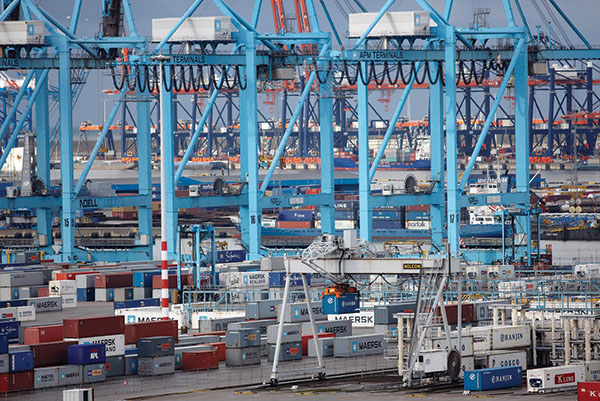European Logistics: Coping with Brexit and the Chaos of Uncertainty
Various scenarios for Brexit are being discussed in advance of Britain’s departure from the EU. In the meantime, shippers, ports, and transportation and logistics providers have all launched a number of initiatives in order to prepare for the worst-case scenario: the“hard Brexit.”
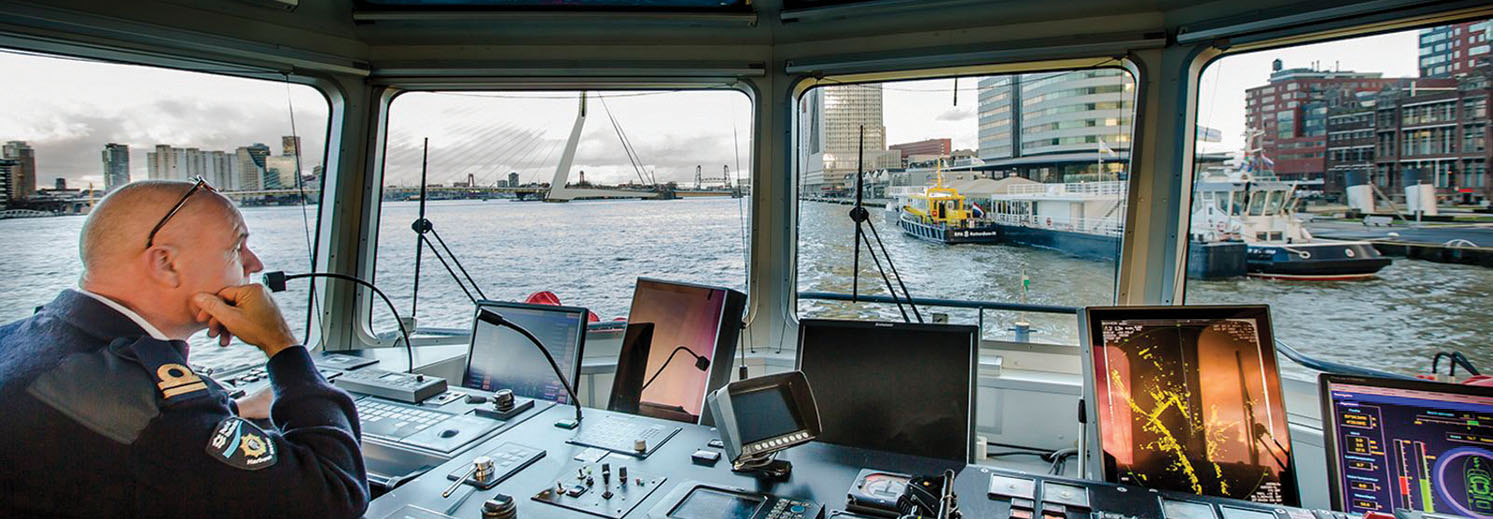
If there is no negotiated separation to regulate trade between the U.K. and the European Union (EU) when the U.K. decides to leave the EU, there would be what is called a “hard Brexit”—a deal whereby the U.K. not only leaves the EU, but also exits the single market and the European Customs Union.
If that becomes the case, the general laws governing customs and tariffs go into immediate effect and the usual customs checks and clearances for foreign trade would apply. Any special allowances or procedures in Britain would no longer be valid.
As logistics managers are well aware, tariffs and cumbersome customs clearance procedures cause delays in supply chains and increase costs for all modes of transport. And at this point, everyone involved in transport and logistics chains throughout the U.K. and the EU has been feeling the mounting pressure. That pressure has manufacturers, ports, and transportation and logistics providers on both sides of the Channel working out plans to cope with the chaos that would result from the hard Brexit scenario.
Logistics service providers have been working with their customers on risk management solutions in preparation for this potential outcome and are developing new supply chain strategies for the post-Brexit era. Seaports on both sides of the Channel are also preparing for the increased paperwork and delays involved in customs clearance.
Belgium: Hoping for postponement
The Belgian ports of Zeebrugge and Antwerp have been preparing for all eventualities, whether a hard or soft Brexit. Port of Antwerp’s CEO Jacques Vandermeiren is hoping that Britain’s departure from the EU will be postponed: “We need a transition period. Otherwise there will be no clarity with regard to tariffs, rules or checks.”
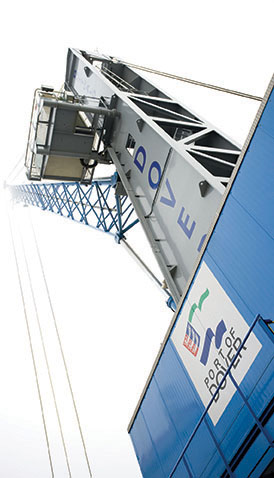 The U.K. is the Port of Antwerp’s second largest trading partner. Each year, over 16 million tons of cargo is handled between the port and the U.K. The Port Authority launched various initiatives in order to be fully prepared for Brexit. In fact, a Brexit taskforce was set up with representatives of the port community, Customs & Excise, and the Federal Agency for the Safety of the Food Chain.
The U.K. is the Port of Antwerp’s second largest trading partner. Each year, over 16 million tons of cargo is handled between the port and the U.K. The Port Authority launched various initiatives in order to be fully prepared for Brexit. In fact, a Brexit taskforce was set up with representatives of the port community, Customs & Excise, and the Federal Agency for the Safety of the Food Chain.
In addition to the appointment of a special representative for the U.K. and Ireland last year, the port organized a trade and logistics roadshow in Birmingham and a stakeholders’ meeting in London early this year. “Of course, we’re doing everything possible to be fully prepared for Brexit,” says Vandermeiren. “But the most desirable situation for us post Brexit would be that trading conditions remain as close as possible to what they are now.”
The Port of Zeebrugge’s CEO, Joachim Coens, also has concern about the high level of uncertainty. “It’s completely unclear what will happen, and we have been preparing for the worst-case scenario,” he says. As one of the leading ferry and ro-ro ports in Europe, Zeebrugge is an important gateway for traffic to and from the U.K. Coens does not expect major administrative delays in Zeebrugge, unlike in other ports, as it mainly handles unaccompanied ro-ro freight. “We don’t have to cope with waiting truck drivers, as most freight is dropped off in the port.”
One of the port’s Brexit initiatives in close cooperation with the private port community was to establish a digital data platform that is suitable for all ro-ro traffic and uses barcodes to streamline the cargo flows. When cargo enters the digital platform, it gets a digital waiver from customs. Thanks to this code, that cargo can be driven through when entering the terminal, and checks are only necessary for cargo that has not been automatically captured by the system. The port has also set up customs information for U.K. trade and is hiring an additional 141 staff members in preparation for Brexit.
Rotterdam: A “Get Ready for Brexit” campaign
The Dutch transport and logistics industry and the port of Rotterdam are also very concerned about a no-deal Brexit. Following Russia, the U.K. is the second biggest trade partner for seaborne cargo transported to and from Rotterdam. According to Mark Dijk, head of external relations at the Port of Rotterdam, Brexit may result in congestion around the terminals in the port, as additional formalities could lead to even more delays due to incorrect freight documentation.
To reduce this risk, the Port Authority is consulting with terminal operators and surrounding municipalities to create additional parking areas for freight transport at or around the terminals. It has also conducted a simulation study into the possible impact of Brexit on the infrastructure in the port area.

The Port of Hamburg’s mobile customs services
“These dry runs are important to identify bottlenecks,” says Dijk. In addition, a “Get Ready for Brexit” campaign and website have been launched in cooperation with the national port community system Portbase.
The website focuses on informing and activating parties in the logistics chain, such as importers, exporters, carriers and freight forwarders. “Client journeys” have been established for each target group to show the step-by-step actions that need to be taken—and by whom—as well as when to expedite imports/exports via Dutch ports after March 29, 2019. The cooperating parties have asked the logistics chain to participate in a joint solution in Dutch ports. According to Dijk, this uniform approach will ensure smooth handling of the customs formalities that will arise as a result of Brexit.
Hamburg: Providing new distribution routes
Brexit could also have an impact on trans-shipment, leading to new distribution routes. The Port of Hamburg plays an important role as a hub for trans-shipment cargo in Northern Europe. According to Axel Mattern, CEO of Port of Hamburg marketing, a major part of the congestion to be expected in the ferry ports along the English Channel after Brexit could be bypassed by routing the container transports via Hamburg.
“Due to our connections to more than 40 English ports and regular liner services for container shipping, cargo from the German or European hinterland and the Baltic Sea region can easily reach British ports via Hamburg by shortsea transport,” says Mattern. “For ferry haulage over the English Channel or through the tunnel, which has often been carried out by truck, the shift to shortsea is a logistical alternative with secured transport times. We have the necessary capacities here in Hamburg and have invested in our IT infrastructure and customs service to be prepared for Brexit.”
Dover: Congestion and delay concerns
On the other side of the Channel, preparations are also underway. Shippers and forwarders are particularly afraid of congestion in the British port of Dover, which is the shortest crossing between the U.K. and continental Europe and also the country’s leading ferry port. Brexit is expected to increase paperwork and administration, leading to delays in the ports.
The Port of Dover handles 17% of the U.K.’s total trade in goods and covers 35% of the U.K. ro-ro market. More than 10,000 trucks cross the Channel each day, and around 2.4 million freight vehicles were handled in the port in 2018—most of them trucks with drivers.
Richard Burnett, chief executive of the Road Haulage Association (RHA), is concerned that even brief customs checks on arriving trucks could cause delays at the U.K.’s leading ro-ro port. “Even a two minute customs check would lead to a 20-mile traffic jam, causing chaos on the roads and bottlenecks at ports,” he expects.
Therefore, Burnett welcomes British Revenue and Customs’ (HMRC) announcement of a short-term suspension of the introduction of Safety and Security Declarations as a first step in the right direction. To avoid congestion at U.K. ports in case of a no-deal Brexit, in February HMRC announced “simplified importing procedures” for an initial period of one year. It means that once companies have registered goods for “Transitional Simplified Procedures (TSP)” for customs, they’re allowed to defer making a full declaration until after the goods cross the border and to pay duty up to a month after the shipment has entered the U.K.
However, much uncertainty remains. For example, on the French side of the Channel there are still no clear regulations for exports. Doug Bannister, Port of Dover’s chief executive, also calls for more certainty: “Throughout the Brexit debate, what people have desired is certainty. Uncertainty is continuing, but we are prepared, and we will continue to manage our infrastructure professionally while our team stands ready to handle whatever comes our way.”
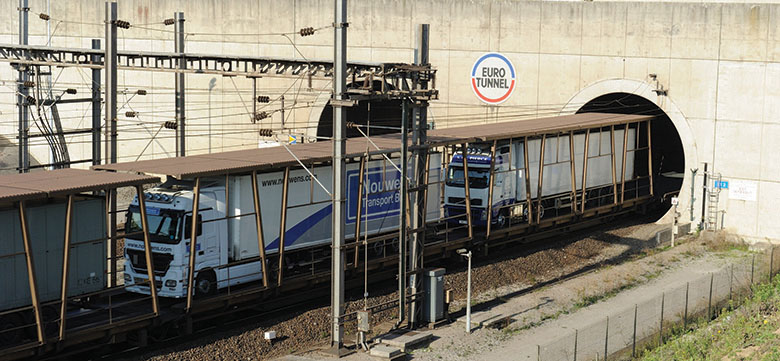
The Euro Tunnel boasts travel from Folkestone to Calais in just 35 minutes.
DfT: Controversy over ferry contract
Another government initiative provoked fierce discussion and shows how heated the atmosphere is in the U.K. The British Department for Transport (DfT) planned to secure additional ferry capacity to transport emergency goods like medicine into the U.K. in case a no-deal Brexit caused bottlenecks in ro-ro ports. To do so, it made an agreement with the U.K.-based company Seaborne Freight, the Danish DFDS, and the French company Brittany Ferries.
However, this February, DfT cancelled the 13.8 million-pound ($18.3 million) contract with Seaborne Freight to operate freight ferries from the British port Ramsgate to Ostend, Belgium. It had become obvious that the start-up company had no vessels and no experience in operating ferries.
Furthermore, Seaborne’s expected financial backer, the Irish company Arklow Shipping, pulled out its money. The contracts with DFDS and Brittany Ferries remain in effect. Another blow followed shortly thereafter, when the companies Channel Tunnel Group Ltd. and France-Manche S.A., which operate the Channel Tunnel, sued the British government. They accuse it of a “secretive and flawed procurement exercise” for the backup ferry service. The tunnel companies said in their court filings that the procurement process for the contracts “had been undertaken without any public notice being issued.”
“Big Parcel” coping with uncertainty
As Brexit could delay shipments, courier and express service companies such as UPS, FedEx, and DHL are checking alternative entry and exit points within the U.K. and Europe.
While negotiations between U.K. and the EU are ongoing, the companies are working intensively on several measures and initiatives to mitigate the effects of any Brexit scenario. All three have launched dedicated Brexit websites. They include webinars and guidelines to explain commercial invoices, VAT rules, customs declarations, and IT structure adjustments, as well as taskforces and emergency plans and other toolkits to guide clients through Brexit.
During the last months, DHL Express has launched several initiatives to prepare for Brexit. Together with its clients, the company has developed emergency plans and has run through various scenarios. “One scenario is to foresee and limit the impact of Brexit on traffic to other countries, such as flights from the DHL hub in East Midlands to the U.S.,” said John Pearson, CEO of DHL Express. “Our wide network makes it possible for us to react flexibly to support our customers in these challenging times.”
Furthermore, the company has hired new customs clearance staff that will work primarily at DHL hubs. “Nevertheless, a high degree of uncertainty remains, because any strategies and decisions depend on what kind of Brexit will be decided on and especially when,” adds Pearson.
Bert Nappier, president of FedEx Express Europe and CEO of TNT, says he’s looking ahead: “Brexit remains uncertain, but FedEx has a long history of experience in international and cross-border logistics, and that gives us great strength here in Europe for supporting customers through whatever reality we face in the coming months and years.”
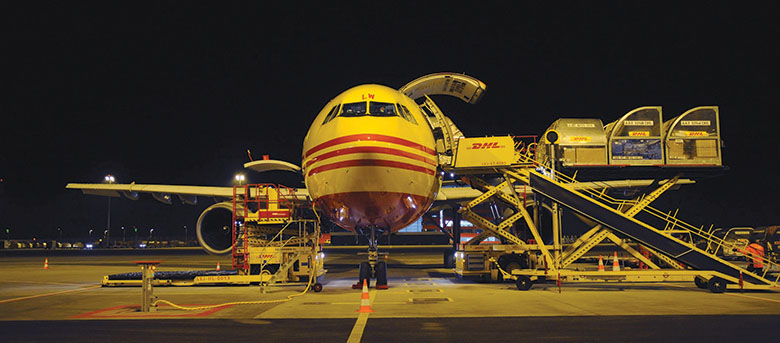
DHL Express' Time Definite Service for international shipments.
How 3PLs will help meet new challenges
In times of Brexit and increasing protectionism, executives at Geodis say that the company is experiencing a sharp increase in demand for consultancy services in the area of trade compliance strategy and customs brokerage.
“Manufacturers are now facing new layers of bureaucracy at more frequent intervals and at ever-shorter notice,” says Marie-Christine Lombard, CEO of Geodis. “We support our clients in staying on top of those changes, and by monitoring and reducing the impact of regulatory constraints, clients benefit from improved delivery times. We examine every last detail of a new customs regulation to check whether a client’s product, of whatever type and format, is subject to a new tariff or not.”
According to Lombard, Brexit and trade wars are challenging for logistics companies. “Providers that advance import duties from their own balance sheet on behalf of their clients can find themselves compromised when those tariffs soar from 2% to 3% to 25% or even 50%,” she says. “As part of our service, we inform clients about new regulations, enabling them to adjust their sales prices, including customs duties, before the goods are shipped and to optimize their cash flow.”
During a Brexit seminar organized by the German Logistics Association BVL, Thomas Pütter, division director of network services and innovations of the third-party services provider Nagel Group, advised the audience to be prepared for the worst case, adding that “supply chain disruptions are to be expected.”
In order to help clients and partners, the Nagel Group, which specializes in food logistics, has worked up customer information checklists for small- and medium-sized companies, as well as emergency plans. “We have created a Brexit food check list, because specific rules apply in the food logistics business,” said Pütter. “For example, usual transit times for shipments will no longer be realistic.”
According to Pütter, the Nagel Group has already secured freight space, which is available independently of the spot market, as well as additional storage capacities in the U.K. where the company operates from eight strategically located depots, including one in Dover. As the demand for warehouse space has increased enormously due to Brexit, particular among large companies, storage capacity is becoming scare.
Finding space to stockpile goods
According to Peter Ward, CEO of the U.K. Warehousing Association (UKWA), the prospect of a no-deal Brexit upped the demand for warehousing in the U.K. at a time when few developers were building storage space without confirmed tenants. Urban land was being prioritized for homebuilding.
At the same time, growth in online retail trade was increasing demand for space, while warehouse operators faced a severe labor and skills shortage because workers from Eastern Europe headed home after the Brexit vote. Added to this is the estimated 200 million extra customs declarations that may need to be processed post Brexit.
“Clearly, this will lead to an interruption in the supply chain,” says Ward. The association is now running the official online space-matching portal “UKWA MarketSpace” that represents more than 750 audited members with over 100 million square feet of space in more than 2,000 locations across the UK.
According to Ward, due to Brexit, the number of new visitors to the website has soared, particularly from the United States, Canada, and China, as use of the service is free of charge. In addition to helping find available warehouse space, the online platform connects users with materials handling suppliers, from forklift trucks to warehouse management systems, as well as logistics service providers.
Looking to the future
At the time of writing, no one can say whether or not an agreement will be met to prevent the U.K. from crashing out of the European Customs Union. But even if a soft Brexit is achieved, many details and final agreements will remain to be worked out during a transition time of several years.
Exactly how cross-border trade will be affected by any kind of Brexit remains unknown, but major changes are certain to occur. The demand for flexible responses to handle changing flows of goods will remain crucial—but that is nothing new for logistics managers.

Article Topics
Ports News & Resources
U.S.-bound import growth track remains promising, notes Port Tracker report Q&A: Port of Oakland Maritime Director Bryan Brandes Signs of progress are being made towards moving cargo in and out of Baltimore New Breakthrough ‘State of Transportation’ report cites various challenges for shippers and carriers in 2024 Industry experts examine the impact of Baltimore bridge collapse on supply chains Port of Baltimore closed indefinitely to ships after 1.6-mile Key Bridge collapses following maritime accident February and year-to-date U.S. import growth is solid, reports S&P Global Market Intelligence More PortsLatest in Logistics
Investor expectations continue to influence supply chain decision-making The Next Big Steps in Supply Chain Digitalization Warehouse/DC Automation & Technology: Time to gain a competitive advantage The Ultimate WMS Checklist: Find the Perfect Fit Under-21 driver pilot program a bust with fleets as FMCSA seeks changes Diesel back over $4 a gallon; Mideast tensions, other worries cited Four U.S. railroads file challenges against FRA’s two-person crew mandate, says report More LogisticsSubscribe to Logistics Management Magazine

Find out what the world's most innovative companies are doing to improve productivity in their plants and distribution centers.
Start your FREE subscription today.
April 2023 Logistics Management

Latest Resources


